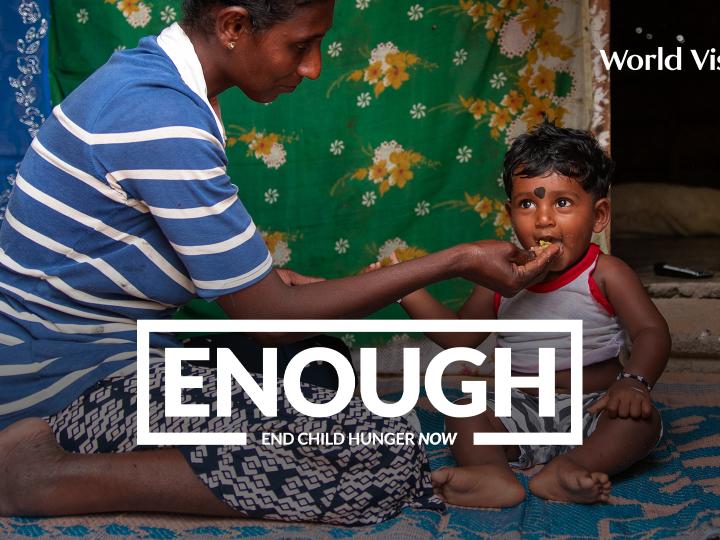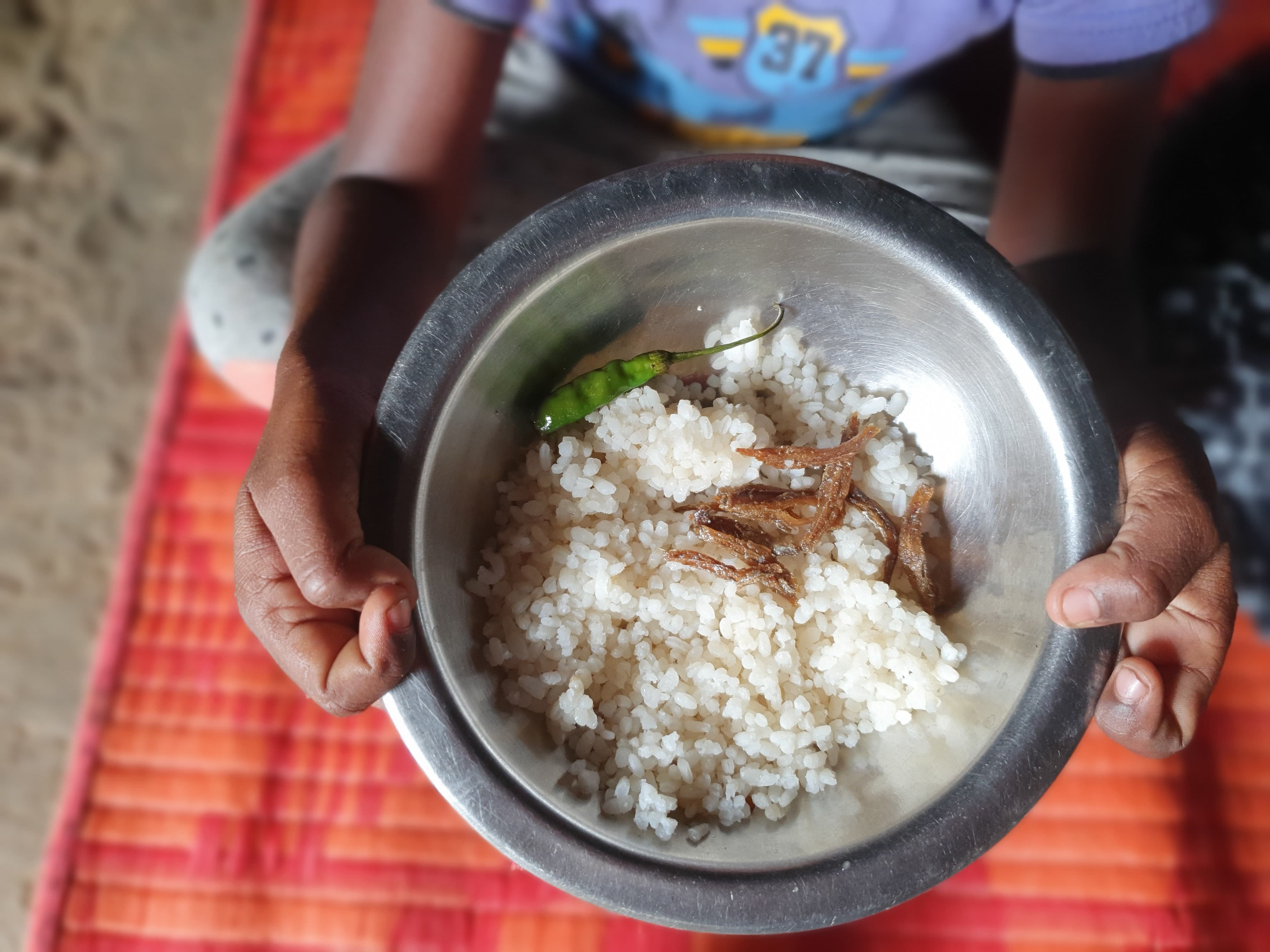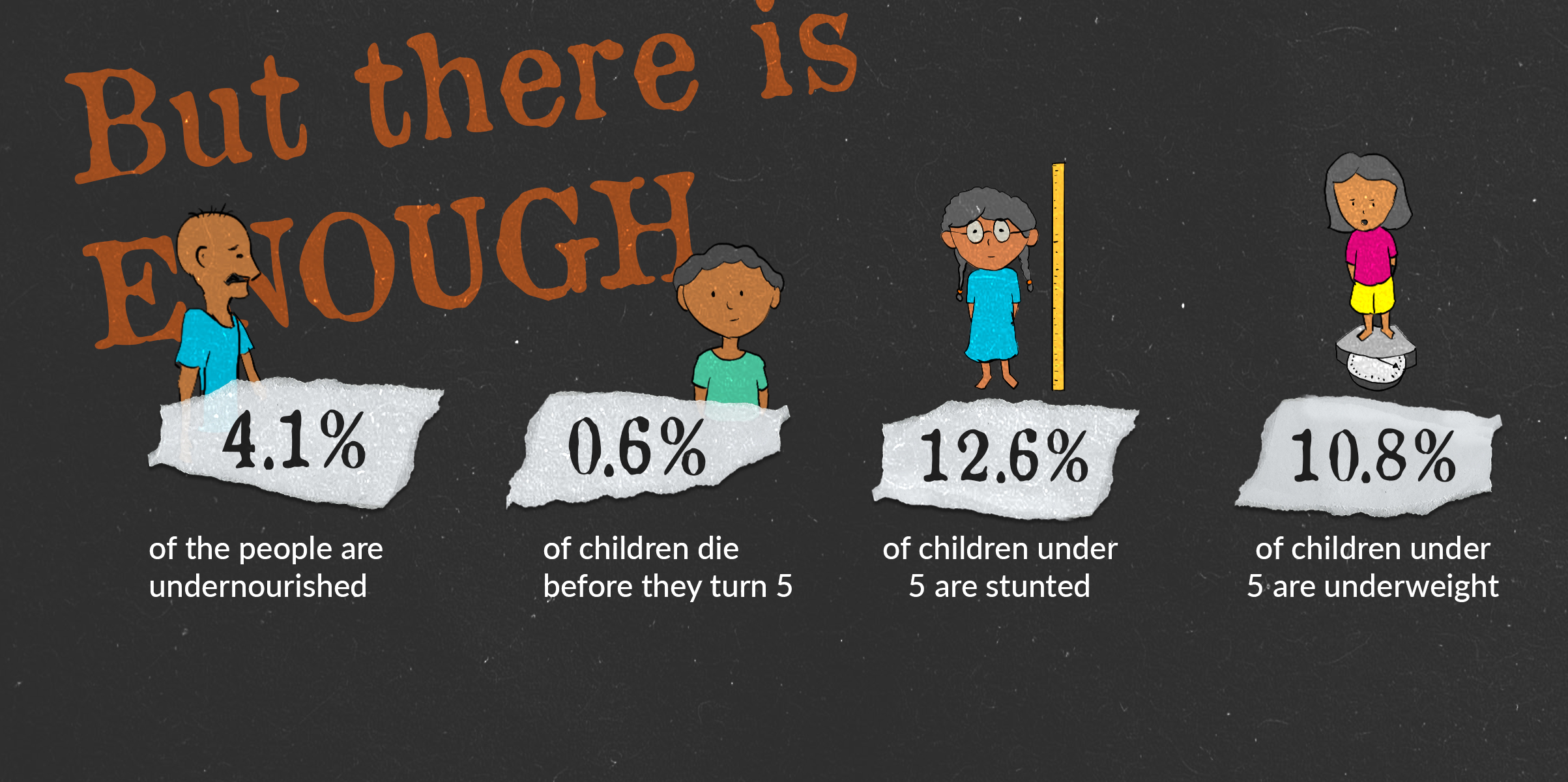
Baseline Study (February 2025)

Sanjana is 5 and hungry. Good thing she knows how to fry. She sits at the little hearth frying four green chillies for her mother, her two sisters and herself to eat with their rice. Most days her meal is one chilli with rice because they can’t afford much.
Today her mother also fried a fist of sprats, so they at least get four sprats each. But she doesn’t have any onion or chilli flakes or even salt to add for taste.
Most of the time, they can’t afford anything else when they buy rice.
What’s on your plate today, and how much of it would you finish?
If you waste one grain of rice from your plate of rice, and your friend wastes one grain and all the people in Sri Lanka waste one grain each…We’ve wasted enough rice that could’ve made 7,000 mid-day meals for children like Sanjana. If we have enough food to waste, how are there hungry children in Sri Lanka?
Hunger is a silent emergency
Without an adequate amount of nutrition, a child suffers irreversible mental and physical damage. It also brings them other risks.
Many children drop out of school, and either get forced to labour to make ends meet or get married off, given up, or sent to institutional care.

Hunger - A problem with a solution
We don’t need complicated interventions to solve the problem of hunger and malnutrition. All we need is food and the right kind of food.
When a child has access to healthy meals, they develop enough immunity to fight disease, enough support to grow in health and enough stamina to play, to explore, to learn and reach their full potential.
Meal programmes: We help strengthen schools and preschool meal programmes by providing at least one nutritious meal a day.
Home gardening: We introduce climate-resilient and nutrition-sensitive home gardens to vulnerable families so that they have access to food throughout the year.
Climate-smart agriculture: We promote climate-smart agriculture among farmers by providing them with tools, seeds, and knowledge.
Hold nutrition programmes: We make efforts to promote correct nutrition habits and rid bad nutrition practices of nursing and pregnant mothers, and mothers of children under 5 years.
Community empowerment: We empower mother support groups so that mothers in the community can take care of their own and their children’s nutrition.
Collect data: Engaging baseline assignments on household hunger in Sri Lanka to find clear data.
Advocacy: Engaging in nutrition and agriculture policy advocacy.
Driving Change: The ENOUGH Campaign's Impact on Child Hunger and Nutrition
The ENOUGH campaign has made significant strides in ensuring children are visible, heard, and better nourished. Our strategic advocacy has led to 26 crucial policy changes in hunger, nutrition, and food security, with seven of these securing vital budgetary commitments. We've empowered a powerful movement, inspiring over 32,000 advocacy actions and ensuring child voices are at the forefront of global conversations, including the Global Nutrition Summit in France 2025.
Through 14 child-led research projects and 72 impactful Nutritional Dialogues, children are directly informing policy with their innovative solutions.
Beyond advocacy, we're building food resilience on the ground.
We've equipped nearly 1,000 individuals with sustainable agricultural practices, including Climate-smart Agriculture, and strengthened local health systems by training 126 community health workers.
Directly addressing malnutrition, over 6,000 children under five received critical nutritional support, with an additional 54 preschool children benefiting from vital midday meals.
In 2023, our initiatives significantly improved the well-being of communities across Sri Lanka: 7,300 underweight children under five received vital support through specialised nutrition programs, and 60,641 school and preschool children benefited from daily mid-day meals. We also strengthened community resilience by training 4,554 individuals in climate-smart agriculture and home gardening, engaging over 700 mother support group members in community health programs, and providing emergency cash transfers to 663,402 individuals during the economic crisis.
The ENOUGH campaign's success is a testament to our comprehensive approach, seamlessly aligning our goals with practical solutions. From national launches and vibrant community mobilisations like kite festivals and street dramas across all 26 Area Programmes, to establishing a crucial baseline assessment for future decision-making, we are creating a lasting impact, ensuring more children enjoy better food security, nutrition, and a brighter future.